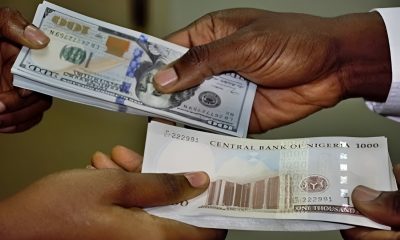By Chioma Obinagwam
More reactions have continued to trail the N50 stamp duty imposed by the Central Bank of Nigeria(CBN) per eligible transaction in accordance with the provisions of the Stamp Duties Act and Federal Government Financial Regulations (2009).
Reacting, shareholders under the aegis of Constance Shareholders’ Association of Nigeria believe that it would discourage Nigerians from participating in the cashless policy, which is still trying to gain grounds in the country.
The Chairman of the Association, Shehu Mikail said: “Now on the issue of N50 charge on any deposit money from N1000 upward. This charges would not encourage Nigerian to have interest in banking system any longer because people would prefer to do their transaction on cash bases without going to the bank.”
He had earlier frowned at the Federal Government’s(FGs) intention to generate revenue internally by increasing taxes and rates; noting that it would mete untold hardship on Nigerians, especially, at the lower strata of the economy, most of whom are living on the meagre N18,000 minimum wage.
ALSO SEE: Shoddy sale of Eleme petrochemicals: As angry former Project Manager/MD takes on BPE
Recall that the sharp drop in oil prices(Nigeria’s major export), which has consequently depleted the country’s external reserves has forced the FG seek alternative sources of funding its N6.1 trillion budget with a deficit of N2.22 trillion.
He also noted that it would impact negatively on banks’ profit, especially when people begin to shy away from making transactions through banks because of the charges.
“And moreover, the cashless policy would not be more effective and most Bank would find low turnout on their customer drive and this will hinder the profit margins of most Banks which is likely to affect the workforce in the banking sector whereby some banks would start lay off their staffs and this will increase the unemployment situation in Nigeria,” he argued.
ALSP SEE: Nigeria to get $607.5 million in aid from America
Mikail, however, advised that rather than do impose it on every eligible transaction, it should have been an annual fee.
He said: “And if government want to implement this stamp duties taxes should have been a flat rate charge per year like N100 on any depositor account only not on every deposit money, chi kanna.”
“My concern now are The interest of Nigerian in banking systems in Nigeria. Customer Drive by Bankers in Nigeria.
Shareholders returns from banking sector. Nigeria economic activities,” he advised.
Earlier, Nigeria Employers Consultative Association, NECA, had expressed serious concern over the recent directive of the Central Bank of Nigeria, CBN, to all Deposit Money Banks, DMB, to commence charging N50 per eligible transaction in accordance with the provisions of the Stamp Duties Act and Federal Government Financial Regulations (2009).
The umbrella body for employers in the country in a statement while calling for immediate reversal of the directive, warned that if allowed to stay would not only worsen the poverty level in the country, it would also, increase the burden on firms in the country.
ALSO SEE: Lets’ fix dollar official rate at N240 – Rewane
Nevertheless, the CBN in defending its course stated that the implementation of the stamp duty at this point in time emanated from a Federal High Court order that the CBN should direct the Deposit Money Banks(DMBs) under its supervision to commence the collection of the duty on behalf of the Federal Government, in compliance with the provisions of the Stamp Duty Act 2004 and the Federal Government of Nigeria Financial Regulation of 2009.
“The N50 stamp duty is charged per transaction and not per volume. Hence, irrespective of the amount, the sum of N50 is to be charged provided such a transaction is N1,000 and above,” CBN clarified.
According to the CBN, there are, however, some exemptions including payment of salaries and wages, payments and deposits or self to self whether inter- or intra-bank.

 Business7 days ago
Business7 days ago
 Business7 days ago
Business7 days ago
 Football19 hours ago
Football19 hours ago
 Education7 days ago
Education7 days ago
 Crime7 days ago
Crime7 days ago
 Covid-197 days ago
Covid-197 days ago
 Business7 days ago
Business7 days ago
 Latest5 days ago
Latest5 days ago













